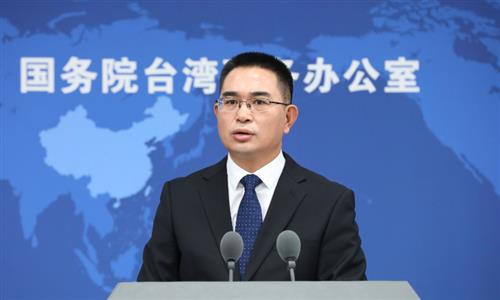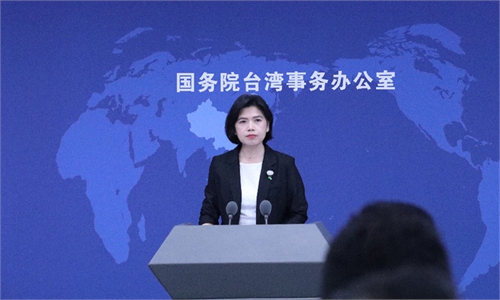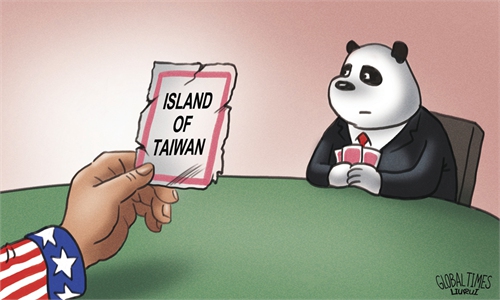
Illustration: Xia Qing/GT
Taiwan regional leader Lai Ching-te's "Double Ten" speech, pushing the "two-state" rhetoric, employs "backdoor listing" tactics to advance the agenda of "Taiwan independence," which could severely poison cross-Straits relations and escalate tensions, mainland scholars said at a seminar held on Friday.
The Institute of Taiwan Studies of Tsinghua University held a seminar on UN General Assembly (UNGA) Resolution 2758 and the one-China principle, with many scholars rebuking Lai's recent secessionist remarks that carried schemes of "de jure independence." They also urged Taiwan compatriots and the international community to fully recognize the harm that stubborn "Taiwan independence" separatists could inflict on the island and regional stability.
On Thursday - October 10, a public holiday on Taiwan island that was originally meant to commemorate the 1911 Revolution - Lai delivered a speech that has been widely criticized by the mainland and people in the island. He claimed that the People's Republic of China has no right to represent Taiwan and they are "not subordinate to each other."
Lai's recent public speeches, including the "Double Ten" speech, have reinforced and consolidated his "Taiwan independence" rhetoric, with the aim of dismantling the legal basis of both sides of the Taiwan Straits belonging to one China. His reaffirmation of the "two-state" rhetoric, claiming the two sides are "not subordinate to each other," is essentially a backdoor listing plot to disguise the idea of "Taiwan independence," Xie Yu, an expert from the China Institute of Contemporary International Relations, said at the seminar.
Zheng Jian, a professor at the Taiwan Research Institute of Xiamen University, said at the Friday seminar that Lai continues to push the new "two-state" rhetoric using insidious tactics, in an attempt to stir up anti-mainland sentiment in the island and align with international anti-China forces' plan to contain China.
From his May 20 inaugural speech and subsequent remarks, it is clear that Lai's stance on "Taiwan independence" is deeply entrenched. His claims of "peace," "democracy," and "goodwill" are deceptive, his brinkmanship dangerous, and his pursuit of "independence through foreign support" opportunistic, Zheng said.
Many scholars criticized Lai as a "true war instigator," "peace disruptor," and "troublemaker" for the dangers his secessionist actions and remarks pose. Some said that Lai is steering Taiwan island toward conflict by undermining the 1992 Consensus, severing the shared national and ethnic identity across the Straits, and fostering hostility and confrontation.
The "Taiwan independence" separatist forces, in collusion with external anti-China forces, are attempting to challenge the one-China principle and distort UNGA Resolution 2758 in an effort to fabricate a "legal basis" for "Taiwan independence," Wu Yongping, director of the Institute of Taiwan Studies, Tsinghua University, told the Global Times on Friday.
"Taiwan independence" will not be tolerated under any circumstances, and it is not surprising to see firm countermeasures from the mainland in response to provocations, said Wu.
Wu also urged the people of Taiwan to fully recognize the harm that "Taiwan independence" secessionists could bring to the peace and stability of the island. He further noted that certain countries should avoid sending misleading signals to "Taiwan independence" separatist forces.
Chen Binhua, a spokesperson of the State Council's Taiwan Affairs Office, said in a statement on Thursday that Lai's speech continued to propagate the new "two state" theory and fabricate "Taiwan independence" fallacies. It has deliberately heightened tensions and gravely undermined peace and stability in the Straits.
Noting that the future of Taiwan lies in national reunification, Chen said that nothing Lai has said can change Taiwan's legal status as a part of China or the fact and status quo that both sides of the Taiwan Straits belong to one China.




